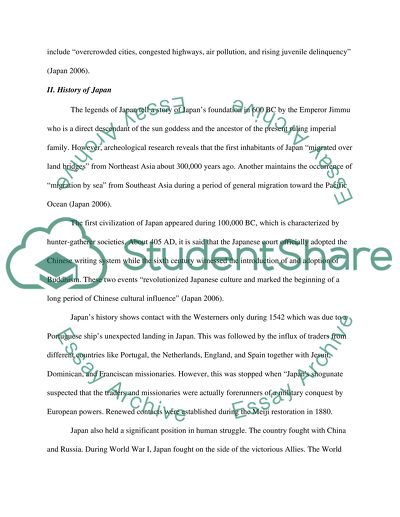Cite this document
(“In Focus: Japan Essay Example | Topics and Well Written Essays - 1250 words”, n.d.)
Retrieved from https://studentshare.org/other/1521859-in-focus-japan
Retrieved from https://studentshare.org/other/1521859-in-focus-japan
(In Focus: Japan Essay Example | Topics and Well Written Essays - 1250 Words)
https://studentshare.org/other/1521859-in-focus-japan.
https://studentshare.org/other/1521859-in-focus-japan.
“In Focus: Japan Essay Example | Topics and Well Written Essays - 1250 Words”, n.d. https://studentshare.org/other/1521859-in-focus-japan.


